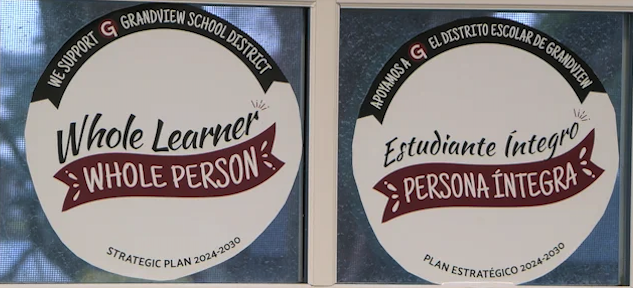
Contracts, Purchasing, and Surplus
Vendors in Good Standing - VIGS
SHB1813 Expanding Employment Opportunities for People with Disabilities became effective June 7, 2003 and declares intent to encourage state agencies to purchase products and/or services manufactured or provided by:
- Community Rehabilitation Programs (CRP); and
- Until December 31, 2009, businesses owned and operated by persons with disabilities (DFP)
University Requirements
- Include at least one VIG for all solicitation processes over $3100.
- Negotiate with the lowest responsible VIG that is not the lowest responsible bidder.
- Determine fair market prices when directly negotiating (create link to definition) without competition with a CRP or a DFP.
Definitions
Vendor in Good Standing (VIG) - means a business owned and operated by persons with disabilities or a community rehabilitation program, that has been determined under RCW43.19.531 and 50.40.065 (create links) to meet the following criteria:- Has not been in material breach of any quality or performance provision of any contract for the purchase of goods or services during the past 36 months; AND
- Has achieved, or continues to work towards, the goal of enhancing opportunities for disadvantaged persons and persons with disabilities to maximize their opportunities for employment and career development, and increase the number employed and their wages, as determined by the governor's committee on disability issues and employment.
Negotiation
After bids have been received and prior to award, negotiations can occur during the bidding process under the following circumstances:
All bids have not been rejected in accordance with RCW 43.19.1911(4) , and
At the agency's discretion solely with the lowest responsible bidder when available information reveals that the best pricing and terms may not have been achieved via the competitive process and the negotiation process is the most viable option AND a bid has not been received from a responsible registered vendor in good standing (VIG), or
As required by RCW 43.19.1911(6) , when a bid has been received from a responsible registered VIG that is not the lowest responsible bidder, negotiations will occur concurrently with the lowest responsible bidder and the lowest VIG.
Negotiations solely with the lowest responsible bidder
When a bid has not been received from a VIG and you are negotiating with the lowest responsible bidder to improve their bid, the following areas may be considered for improvement:
- Pricing
- Delivery or scheduling
- Payment Terms
- MWBE Participation
- Other provisions
Agencies must exercise caution to insure that negotiations do not provide an unfair advantage over other bidders to the lowest responsible bidder. Negotiations may not be held with a bidder that has been determined to be non-responsive. The bid information of other bidders is confidential until award and may not be revealed during negotiations.
Additional areas have been identified that if altered during negotiations would provide a substantial unfair advantage to the lowest responsible bidder and are not open to negotiation. These include:
- Scope of work
- Bid specifications,
- Terms and Conditions
- Other bid requirements
A re-bid may be initiated if negotiation results fail to achieve reasonable pricing. See RCW 43.19.1911(4)(f).
Negotiations when a bid has been received from a responsible registered VIG that is not the lowest responsible bidder.
Parameters were identified in the previous section regarding negotiations solely with the lowest responsible bidder. There are additional parameters regarding negotiations with both the lowest responsible bidder and with the lowest responsible VIG. Additional parameters are necessary recognizing that negotiations will now provide an opportunity for the bidder that initially was not the lowest responsible bidder (the VIG) to improve their bid during negotiations such that a re-scoring would result in their receiving an award. The additional parameters of the negotiation are:
Negotiations shall occur upon completion of evaluation/ranking and prior to notice to unsuccessful bidders.
Areas that may be considered for improvement are the same cost and non-cost award criteria identified in the solicitation
The bidder's responses to the opportunity is re-scored using the same scoring methodology as the solicitation
Pass/fail responsibility tests are not considered for improvement
Information provided by a third party is not considered for improvement. Some examples are financial data provided by an accounting firm, independent laboratory test certifications, and references.
Information provided during negotiations is limited to identification of award factor(s) that if improved would allow bid to be considered for award. Award gap specifics cannot be provided
Both the lowest responsible bidder and the lowest responsible registered VIG shall be informed that negotiations are occurring and both shall have one equal opportunity to improve their bid. The primary communication channel to notify bidders of the negotiation opportunity is email. Using email as the communication channel provides expedient notice as well as validation that the notification has been received.
The lowest responsible VIG and the lowest responsible bidder have 5 working days from release of notification to respond. The VIG's and the low bidder's response shall be a signed and sealed hard copy. This is consistent with the sealed bid process and insures documentation in the event of dispute or audit. The university will have 5 working days upon receipt of the responses to reply.
CWU News

$4 million federal grant aimed at helping with school psychologist shortage
February 25, 2026 by Marketing and Communications

CWU Disability Services aims to provide equitable access to education
February 23, 2026 by Rune Torgersen